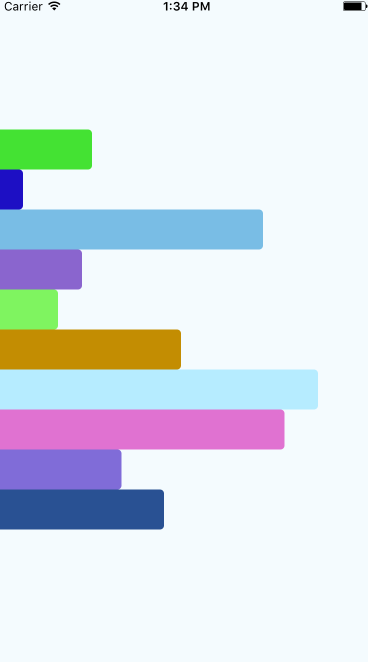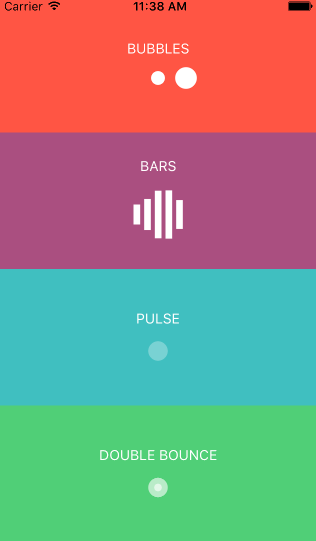Animations in React
Intro to
by Keziyah Lewis

reactjsexample.com/tic-tac-toe-game-on-react-js/

hackernoon.com

react-native-loader (github)

react-motion demo

reaction-page-transition demo

react-screen

lottie-react-native
How do you animate a React component?
Today, we will use
- CSS transitions + react-transition-group
- a 3rd party package (react-screen)
- Higher Order Components
- TweenMax
to animate a UI for a fake e-commerce site.
Because the sharing economy has officially gone too far.

Task 1
Animate the appearance of a search box upon clicking a
search icon.
Tools needed:
- react-transition-group (fork and download from Github)
Approach
CSS transitions

source: codeproject.com

Text
from Facebook's React docs
Starting Point
Import CSSTransitionGroup, and wrap it around Search
import React, { Component } from 'react'
import {Link} from 'react-router'
import CSSTransitionGroup from './react-transition-group/src/CSSTransitionGroup'
import Search from './Search'
class Hero extends Component {
render() {
return (
<div id="heroimg">
<div id="hero-text" className="container">
<div className="col-md-8">
<h1>New hair don't care.</h1>
<h4>Boot the bundles. Skip the beauty shop. Buy hair for your next look from people right in your neighborhood.</h4>
</div>
</div>
<CSSTransitionGroup>
<Search/>
</CSSTransitionGroup>
</div>
)
}
}
export default Hero Hero.jsx
Add CSS
/*Keep consistency with class names
**Use "appear" for initial loading of the page
**Use "enter" for components that load after the page load
such as those that load in response to an event.
**The transition seconds in CSS should match the milliseconds passed into
CSSTransitionGroup
*/
/*Conditions for when the search form first appears.*/
.search-enter {
width: 0;
}
/*Specify length of time and end result of transition, before
the search component renders as normal*/
.search-enter.search-enter-active {
width: 90%;
transition: width 0.4s ease-in;
}style.css
Add transition props
<CSSTransitionGroup
transitionName="search"
transitionAppear={false}
transitionEnterTimeout={400}
transitionEnter={true}
transitionLeave={false}>
<Search/>
</CSSTransitionGroup>Hero.jsx
Make sure the transition name and timeout values reflect what is in style.css.
Add click handler + logic
class Hero extends Component {
constructor() {
super()
this.state = { shouldShowSearch: false }
this.showSearch = this.showSearch.bind(this)
}
showSearch() {
this.setState({ shouldShowSearch: true })
}
render() {
const searchIcon = <button className="mdl-button mdl-js-button"
id="icon-search" onClick={this.showSearch}>
<span className="glyphicon glyphicon-search"
aria-hidden="true"></span>
</button>Hero.jsx
<CSSTransitionGroup transitionName="search" transitionAppear={false}
transitionEnterTimeout={400} transitionEnter={true} transitionLeave={false}>
{!this.state.shouldShowSearch && searchIcon}
{this.state.shouldShowSearch && <Search />}
</CSSTransitionGroup>There you go!
Task 2
Animate page transitions.

Approach
CSS Transitions
Tools Needed
Just CSS and keyframes or react-transition-group
Starting Point
'use strict'
import React from 'react'
import {Router, Route, IndexRoute, browserHistory} from 'react-router'
import {render} from 'react-dom'
import App from './components/App'
import Home from './components/Home'
import Results from './components/Results'
render(
<Router history={browserHistory}>
<Route path="/" component={App}>
<IndexRoute component={Home} />
<Route path="/results" component={Results} />
</Route>
</Router>,
document.getElementById('main')
)
main.jsx
import React, { Component } from 'react'
class App extends Component {
render() {
return (
<div>
{this.props.children}
</div>
)
}
}
export default AppApp.jsx
Wrap the App's children in <CSSTransitionGroup /> and clone them.
import React, { Component } from 'react'
import CSSTransitionGroup from './react-transition-group/src/CSSTransitionGroup'
class App extends Component {
render() {
return (
<div>
//We will add transition properties later...
<CSSTransitionGroup >
//We need to clone the children because we are adding props
{React.cloneElement(this.props.children,
{key: this.props.location.pathname})}
//Won't work without the key
//location.pathname -> /results
</CSSTransitionGroup>
</div>
)
}
}
export default AppApp.jsx
/*Conditions for when the search form first appears.*/
.fade-enter {
opacity: 0.01;
}
/*Specify length of time and end result of transition, before
the search component renders as normal*/
.fade-enter.fade-enter-active {
opacity: 1;
transition: opacity 0.8s ease-in;
}
/*Conditions for when the search icon first leaves*/
.fade-leave {
opacity: 1
}
/*When it first appears you can't see anything*/
.fade-appear {
opacity: 0;
}
/*But while it's appearing...*/
.fade-appear.fade-appear-active {
opacity: 1;
transition: opacity 0.8s ease-in;
}style.css
Add CSS
//Use keyframes without react-transition-group
//Just send class names to components as a prop
.anim {
animation: anim 1s ease-out 0s 1;
}
@keyframes anim {
0% {
transform: translateX(-100%);
}
100% {
transform: translateX(0);
}
}Alternative: Use keyframes
style.css
<CSSTransitionGroup transitionName="fade"
transitionAppear={true} transitionEnter={true}
transitionLeave={true}
transitionLeaveTimeout={200}
transitionEnterTimeout={800}
transitionAppearTimeout={800}>
{React.cloneElement(this.props.children,
{key: this.props.location.pathname})}
</CSSTransitionGroup>App.jsx
Add transition properties
Or if just using keyframes, add the className to the div that holds the component, and you don't need <CSSTransitionGroup />
done & done
Task 3
Add a carousel for the how-to guide.

Approach
Use a node package,
react-screen by Gao Sun.
Tools needed
- react-screen
- link to CSS
- see website
source: react-view-pager on github
Starting Point
class HowTo extends Component {
render() {
return (
<div className="container">
<div id="tutorial-header">
<h1 id="hair-tutorial-header">Hairbnb is
revolutionizing the way you shop for hair.
Here's how.
</h1>
</div>
<HowToCard image={image1} header={header1} paragraph={paragraph1}/>
<HowToCard image={image2} header={header2} paragraph={paragraph2}/>
<HowToCard image={image3} header={header3} paragraph={paragraph3}/>
<HowToCard image={image4} header={header4} paragraph={paragraph4}/>
</div>
)
}
}HowTo.jsx

<HowToCard />
That's it!
import React, { Component } from 'react'
import { Screen, ScreenSlice } from 'react-screen';
//Don't forget to link to the CSS file
class HowTo extends Component {
render() {
return (
<div className="container">
<div id="tutorial-header">
<h1 id="hair-tutorial-header">Hairbnb is
revolutionizing the way you shop for hair.
Here's how.
</h1>
</div>
<Screen>
<ScreenSlice>
<HowToCard image={image1} header={header1} paragraph={paragraph1}/>
</ScreenSlice>
<ScreenSlice>
<HowToCard image={image2} header={header2} paragraph={paragraph2}/>
</ScreenSlice>
<ScreenSlice>
<HowToCard image={image3} header={header3} paragraph={paragraph3}/>
</ScreenSlice>
<ScreenSlice>
<HowToCard image={image4} header={header4} paragraph={paragraph4}/>
</ScreenSlice>
</Screen>
</div>
)
}
}HowTo.jsx
Task 4
Make each results card flip to reveal a "report user" form.

Approach
Higher order components with TweenMax.
Tools Needed
- link to TweenMax in script tag in HTML
- react-transition-group
source: codemyui.com

Starting Point
We have a ResultsCard component and a ReportCard component

<ResultsCard />
<ReportCard />

MakeFlip.jsx
Write HOC
import React from 'react'
import {findDOMNode, render} from 'react-dom'
function makeFlip (Component) {
return class Flip extends React.Component {
//This is called at the same time as componentDidMount
componentWillEnter (callback) {
const el = findDOMNode(this)
}
//This is called when the child has been removed from the ReactTransitionGroup
componentWillLeave(callback) {
const el = findDOMNode(this)
}
render() {
return <Component { ...this.props } />
}
}
}
//Animation hooks that are provided a callback will prevent other
//animations from running until the callback is called. This function takes a regular component and returns an enhanced component.
Animate with TweenMax
The fromTo function lets you specify the start and end.
of an animation.
TweenMax.fromTo(el,
1,
{rotation: 180, opacity: 0},
{rotation: 0, opacity: 1, onComplete: callback}
)
1. The element that is being animated.
2. Time in seconds
3. Starting point
4. Ending point.
function makeFlip (Component) {
return class Flip extends React.Component {
componentWillEnter (callback) {
const el = findDOMNode(this)
TweenMax.fromTo(el, 0.5, {rotationY: 180, opacity: 0},
{rotationY: 0, opacity:1, onComplete: callback})
}
//This hook is not needed for this animation
// (that's why time is set to 0.)
//But if I were using it, I would have the card
// flip on the Y axis -180deg.
componentWillLeave(callback) {
const el = findDOMNode(this)
TweenMax.fromTo(el, 0, {rotationY:0, opacity:0},
{rotationY: -180, opacity: 0, onComplete: callback})
}
render() {
return <Component { ...this.props } />
}
}
}Add animation to lifecycle hooks.
MakeFlip.jsx
Export the enhanced functions.
import React from 'react'
import {findDOMNode, render} from 'react-dom'
import ResultCard from './ResultCard'
import ReportCard from './ReportCard'
function makeFlip (Component) {
return class Flip extends React.Component
//...see previous slide
}
//Create the animated front card by passing it into the HOC above
export const Front = makeFlip(ResultCard)
//Create the animated back card by passing it into the HOC above
export const Back = makeFlip(ReportCard)MakeFlip.jsx
import React, {Component} from 'react'
import TransitionGroup from './react-transition-group/src/TransitionGroup'
import {Front, Back} from './MakeFlip'
export default class Results extends Component {
state = {
shouldShowResult: true,
shouldShowReport: false
}
toggle = () => {
this.setState({
shouldShowResult: !this.state.shouldShowResult,
shouldShowReport: !this.state.shouldShowReport
})
}
render () {
return (
<div>
//For as many cards as you have...
<TransitionGroup>
{ this.state.shouldShowResult && <Front/>}
{ this.state.shouldShowReport && <Back/>}
</TransitionGroup>
<button onClick={this.toggle}>toggle</button>
</div>
)
}
}Results.jsx
Add toggling logic. Wrap components in a <TransitionGroup />
Render a toggle button or pass the toggle function as a prop to <Front /> and <Back />
...NOT <CSSTransitionGroup />
Take aways:
- You don't need jQuery
- All you really need is CSS
- Use libraries or packages
- HOCs are great for animation
- Be as creative or as lazy as you want
Learn more.
- Animations with React Transition Group: Part 1, Part 2 by Chang Wang
- Intro to React Motion, by Nash Vail
- Animated Microinteractions in React by Christian Sepulveda
- Video: Get Started Quickly with GSAP
- Facebook's react-transition-group
- react-transition-group-plus
- 29 React Motion examples on React Rocks
- Talk: Animating in React by Sarah Drasner
- Talk: SVG and GreenSock for complex animation by Sarah Drasner

Thank you
lottie-react
Link to presentation on - @KeziyahL


github.com/keziyah
Tech Talk: Intro to Animations in React
By Keziyah Lewis
Tech Talk: Intro to Animations in React
- 2,685


